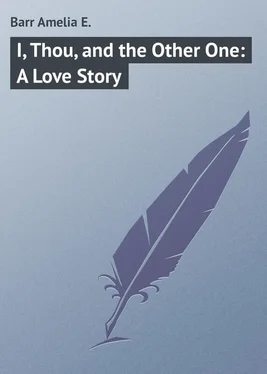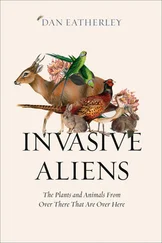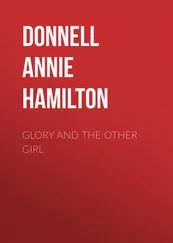Amelia Barr - I, Thou, and the Other One - A Love Story
Здесь есть возможность читать онлайн «Amelia Barr - I, Thou, and the Other One - A Love Story» — ознакомительный отрывок электронной книги совершенно бесплатно, а после прочтения отрывка купить полную версию. В некоторых случаях можно слушать аудио, скачать через торрент в формате fb2 и присутствует краткое содержание. Жанр: foreign_prose, на английском языке. Описание произведения, (предисловие) а так же отзывы посетителей доступны на портале библиотеки ЛибКат.
- Название:I, Thou, and the Other One: A Love Story
- Автор:
- Жанр:
- Год:неизвестен
- ISBN:нет данных
- Рейтинг книги:3 / 5. Голосов: 1
-
Избранное:Добавить в избранное
- Отзывы:
-
Ваша оценка:
- 60
- 1
- 2
- 3
- 4
- 5
I, Thou, and the Other One: A Love Story: краткое содержание, описание и аннотация
Предлагаем к чтению аннотацию, описание, краткое содержание или предисловие (зависит от того, что написал сам автор книги «I, Thou, and the Other One: A Love Story»). Если вы не нашли необходимую информацию о книге — напишите в комментариях, мы постараемся отыскать её.
I, Thou, and the Other One: A Love Story — читать онлайн ознакомительный отрывок
Ниже представлен текст книги, разбитый по страницам. Система сохранения места последней прочитанной страницы, позволяет с удобством читать онлайн бесплатно книгу «I, Thou, and the Other One: A Love Story», без необходимости каждый раз заново искать на чём Вы остановились. Поставьте закладку, и сможете в любой момент перейти на страницу, на которой закончили чтение.
Интервал:
Закладка:
“In a general way, you are right, Miss Atheling,” answered North. “If the rider sits just and upright, then any sudden jerk forward throws the shoulders backward; and in that case, if a horse thinks proper to fall, he will be the sufferer. He may cut his forehead, or hurt his nose, or bark his knees, but he will be a buffer to his rider.”
“Candace has never tripped with me. I have had her four years. I will never part with her.”
“That is right. Don’t keep a horse you dislike, and don’t part with one that suits you.”
“Do you love horses?”
“Yes. A few years ago I was all for horses. I could sit anything. I could jump everything, right and left. I had a horse then that was made to measure, and foaled to order. No one borrowed him twice. He had a way of coming home without a rider. But I have something better than horses to care for now; and all I need is a good roadster.”
“My father likes an Irish cob for that purpose.”
“Nothing better. I have one in the village that beats all. He can trot fourteen miles an hour, and take a six-foot wall at the end of it.”
“Do you ride much?”
“I ride all over England.”
She looked curiously at him, but asked no questions; and North continued the conversation by pointing out to her the several points which made Candace so valuable. “In the first place,” he said, “her colour is good,–that dark chestnut shaded with black usually denotes speed. She has all the signs of a thoroughbred; do you know them?”
“No; but I should like to.”
“They are three things long,–long ears, long neck, and long forelegs. Three things short,–short dock, short back, and short hindlegs. Three things broad,–broad forehead, broad chest, and broad croup. Three things clean,–clean skin, clean eyes, and clean hoofs. Then the nostrils must be quite black. If there had been any white in the nostrils of Candace, I would have ranked her only ‘middling.’”
Kate laughed pleasantly, and said over several times the long, short, broad, and clean points that went to the making of a thoroughbred; and, by the time the lesson was learned, they were at the door of the Manor-house. Mrs. Atheling stood just within it, and when Kate said,–
“Mother, this is Edgar’s friend, Mr. Cecil North,” she gave him her hand and answered:
“Come in! Come in! Indeed I am fain and glad to see you!” and all the way through the great hall, and into her parlour, she was beaming and uttering welcomes. “First of all, you must have a bit of eating and drinking,” she said, “and then you will tell me about my boy.”
“Thank you. I will take a glass of ale, if it will please you.”
“It will please me beyond everything. You shall have it from the Squire’s special tap: ale smooth as oil, sweet as milk, clear as amber, fourteen years old next twenty-ninth of March. And so you know my son Edgar?”
“I know him, and I love him with all my heart. He is as good as gold, and as true as steel.”
“To be sure, he is. I’m his mother, and I ought to know him; and that is what I say. How did you come together?”
“We met first at Cambridge; but we were not in the same college or set, so that I only knew him slightly there. Fortune had appointed a nobler introduction for us. I was in Glasgow nearly a year ago, and I wandered down to the Green, and was soon aware that the crowd was streaming to one point. Edgar was talking to this crowd. Have you ever heard him talk to a crowd?”
The mother shook her head, and Kate said softly: “We have never heard him.” She had taken off her hat, and her face was full of interest and happy expectation.
“Well,” continued North, “he was standing on a platform of rough boards that had been hastily put together, and I remembered instantly his tall, strong, graceful figure, and his bright, purposeful face. He was tanned to the temples, his cheeks were flushed, the wind was in his hair, the sunlight in his eyes; and, with fiery precipitance of assailing words, he was explaining to men mad with hunger and injustice the source of all their woes and the remedy to be applied. I became a man as I listened to him. That hour I put self behind me and vowed my life, and all I have, to the cause of Reform; because he showed me plainly that Parliamentary Reform included the righting of every social wrong and cruelty.”
“Do you really think so?” asked Kate.
“Indeed, I am sure of it. A Parliament that represented the great middle and working classes of England would quickly do away with both black and white slavery,–would repeal those infamous Corn Laws which have starved the working-man to make rich the farmer; would open our ports freely to the trade of all the world; would educate the poor; give much shorter hours of labour, and wages that a man could live on. Can I ever forget that hour? Never! I was born again in it!”
“That was the kind of talk that he angered his father with,” said Mrs. Atheling, between tears and smiles. “You see it was all against the land and the land-owners; and Edgar would not be quiet, no matter what I said to him.”
“He could not be quiet. He had no right to be quiet. Why! he sent every man and woman home that night with hope in their hearts and a purpose in their wretched lives. Oh, if you could have seen those sad, cold faces light and brighten as they listened to him.”
“Was there no one there that didn’t think as he did?”
“I heard only one dissenting voice. It came from a Minister. He called out, ‘Lads and lasses, take no heed of what this fellow says to you. He is nothing but a Dreamer.’ Instantly Edgar took up the word. ‘A Dreamer!’ he cried joyfully. ‘So be it! What says the old Hebrew prophet? Look to your Bible, sir. Let him that hath a dream tell it. Dreamers have been the creators, the leaders, the saviours of the world. And we will go on dreaming until our dream comes true!’ The crowd answered him with a sob and a shout–and, oh, I wish you had been there!”
Kate uttered involuntarily a low, sympathetic cry that she could not control, and Mrs. Atheling wept and smiled; and when North added, in a lower voice full of feeling, “There is no one like Edgar, and I love him as Jonathan loved David!” she went straight to the speaker, took both his hands in hers, and kissed him.
“Thou art the same as a son to me,” she said, “and thou mayst count on my love as long as ever thou livest.” And in this cry from her heart she forgot her company pronoun, and fell naturally into the familiar and affectionate “thou.”
Fortunately at this point of intense emotion a servant entered with a flagon of the famous ale, and some bread and cheese; and the little interruption enabled all to bring themselves to a normal state of feeling. Then the mother thought of Edgar’s clothing, and asked North if he could take it to him. North smiled. “He is a little of a dandy already,” he answered. “I saw him last week at Lady Durham’s, and he was the best dressed man in her saloon.”
“Now then!” said Mrs. Atheling, “thou art joking a bit. Whatever would Edgar be doing at Lady Durham’s?”
“He had every right there, as he is one of Lord Durham’s confidential secretaries.”
“Art thou telling me some romance?”
“I am telling you the simple truth.”
“Then thou must tell me how such a thing came about.”
“Very naturally. I told Lord Grey and his son-in-law, Lord Durham, about Edgar–and I persuaded Edgar to come and speak to the spur and saddle-makers at Ripon Cross; and the two lords heard him with delight, and took him, there and then, to Studley Royal, where they were staying; and it was in those glorious gardens, and among the ruins of Fountains Abbey, they planned together the Reform Campaign for the next Parliament.”
Читать дальшеИнтервал:
Закладка:
Похожие книги на «I, Thou, and the Other One: A Love Story»
Представляем Вашему вниманию похожие книги на «I, Thou, and the Other One: A Love Story» списком для выбора. Мы отобрали схожую по названию и смыслу литературу в надежде предоставить читателям больше вариантов отыскать новые, интересные, ещё непрочитанные произведения.
Обсуждение, отзывы о книге «I, Thou, and the Other One: A Love Story» и просто собственные мнения читателей. Оставьте ваши комментарии, напишите, что Вы думаете о произведении, его смысле или главных героях. Укажите что конкретно понравилось, а что нет, и почему Вы так считаете.












